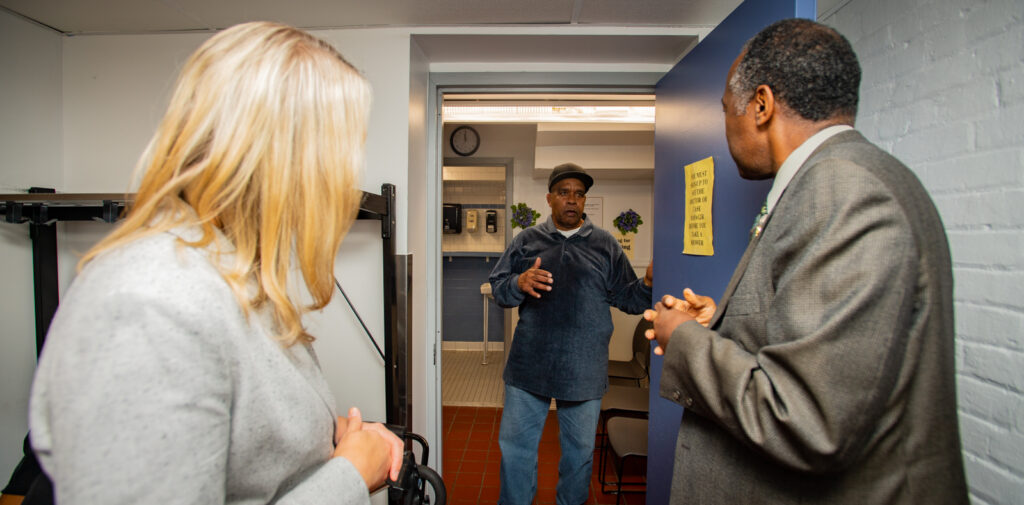What if we can’t find anywhere else to live? What if we are homeless forever?
Questions like these are asked by members of the community every day– to politicians, social workers and society as a whole.
But in this case, a seahorse is asking the questions. And her dilemma is being presented to children.
The drama unfolds in a children’s book called Voyage to Shelter Cove. The story follows a group of sea creatures who become homeless when their community is destroyed. The book is part of a series produced by the New York-based Institute for Children, Poverty and Homelessness (ICPH), an organization that researches the causes of family homelessness, the demographics of this growing population, the conditions that make it difficult for homeless families to become self-sufficient, and the programs that are most effective in helping them transition out of poverty. Much of the research the organization conducts and disseminates, with the goal of improving services and influencing public policy, is geared toward an adult audience.
Yet children too, need to understand homelessness. And animal characters help engage them, said Ralph da Costa Nunez who wrote Voyage to Shelter Cove, with Jesse Ellison.
“The main thing is… homelessness, family homelessness, is a children’s issue,” said Nunez, who is also the president of the ICPH.
There are currently five books in the children’s book series published by White Tiger Press: Our Wish, Cooper’s Tale, Saily’s Journey, Voyage to Shelter Cove and Mango’s Quest.
Each volume uses a story to dramatize a different factor that can contribute to the loss of a family’s home. The stories do not end with the last page of the books. Lesson plans and discussion questions are also part of the learning experience. Through the use of coloring pages and activities, children learn the difference between such concepts as “need” and “want.” The are encouraged to talk about the emotions that might underlie difficult situations.
One of the institute’s websites, icphusa.org/homeatlast, offers resources for parents, teachers and community volunteers.
A new title, also by Nunez, “Ears Up, Ears Down,” is slated to be released in late October. According to Nunez, the story follows the life of a dog that lives in a junkyard. Because the dog is so well loved, his ears are always up– that is, until he faces foreclosure and becomes homeless. His “down” ears are now a reflection of his displacement, and he is forced to find shelter elsewhere. The dog meets a boy and a girl who are living in a car, and eventually he comes to a tent city out West, where he finds a job with a food truck. When asked what his name is, the dog replies, “Ears Up, Ears Down” to signify the positive as well as the unfortunate situations that he has experienced.
Used at home or in the classroom setting, Nunez said one of the reasons he has fostered this series is because of the need “to educate young children that their peers could be homeless.”
In the wake of the recession, homelessness has touched an increasing number of young lives. The statistics are grim.
Across the country, a total of 79,446 families were living in homelessness on a single night in 2010, up from 2009, according to the U.S. Department of Housing and Urban Development.
In the DC region over the past four years, the number of homeless men, women and children living in families has risen about 23 percent, according to the findings of annual regional homeless counts. In 2012, homeless children, numbering 3,388, accounted for 29 percent of the region’s homeless population.
Nationwide, the number of homeless students increased 38 percent between 2006 to 2010, according to the National Center for Homeless Education.
The White Tiger Press book series is meant as a bridge so that educators and parents can talk to children about homelessness. And it serves as a reminder to children without direct experience of homelessness that not every child has a safe and healthy living situation.
As Nunez puts it: “That person next to you could be homeless.”







